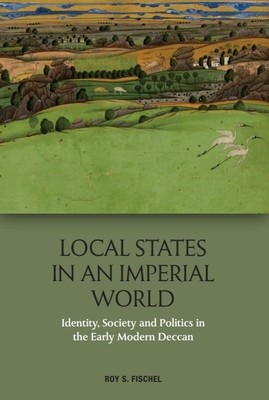
- We will send in 10–14 business days.
- Author: Roy S Fischel
- Publisher: Edinburgh University Press
- ISBN-10: 1474436080
- ISBN-13: 9781474436083
- Format: 15.6 x 23.4 x 1.7 cm, softcover
- Language: English
- SAVE -10% with code: EXTRA
Reviews
Description
Focusing on the Deccan Sultanates of 16th- and 17th-century central India, Local States in an Imperial World promotes the idea that some polities of the time were not aspiring to be empires. Instead of the universalist and hierarchical vision typical of the language of empire, the sultanates presented another brand of state - one that prefers negotiation, flexibility and plurality of languages, religions and cultures.
Building on theories of early modernity, empire, cosmopolitanism and vernaculars, Roy Fischel considers the components that shaped state and society: people, identities and idioms. He presents a frame for understanding the Deccan Sultanates as a rare case of the early modern non-imperial state, shedding light both on the region and on the imperial world surrounding it.
EXTRA 10 % discount with code: EXTRA
The promotion ends in 4d.20:01:21
The discount code is valid when purchasing from 10 €. Discounts do not stack.
- Author: Roy S Fischel
- Publisher: Edinburgh University Press
- ISBN-10: 1474436080
- ISBN-13: 9781474436083
- Format: 15.6 x 23.4 x 1.7 cm, softcover
- Language: English English
Focusing on the Deccan Sultanates of 16th- and 17th-century central India, Local States in an Imperial World promotes the idea that some polities of the time were not aspiring to be empires. Instead of the universalist and hierarchical vision typical of the language of empire, the sultanates presented another brand of state - one that prefers negotiation, flexibility and plurality of languages, religions and cultures.
Building on theories of early modernity, empire, cosmopolitanism and vernaculars, Roy Fischel considers the components that shaped state and society: people, identities and idioms. He presents a frame for understanding the Deccan Sultanates as a rare case of the early modern non-imperial state, shedding light both on the region and on the imperial world surrounding it.


Reviews